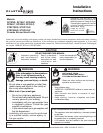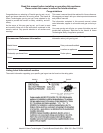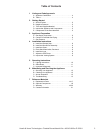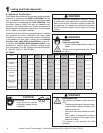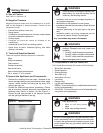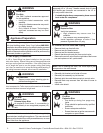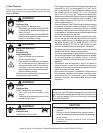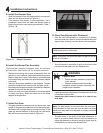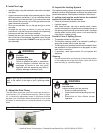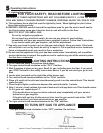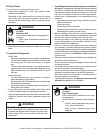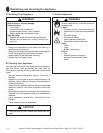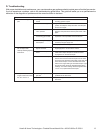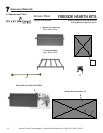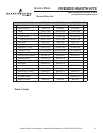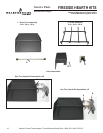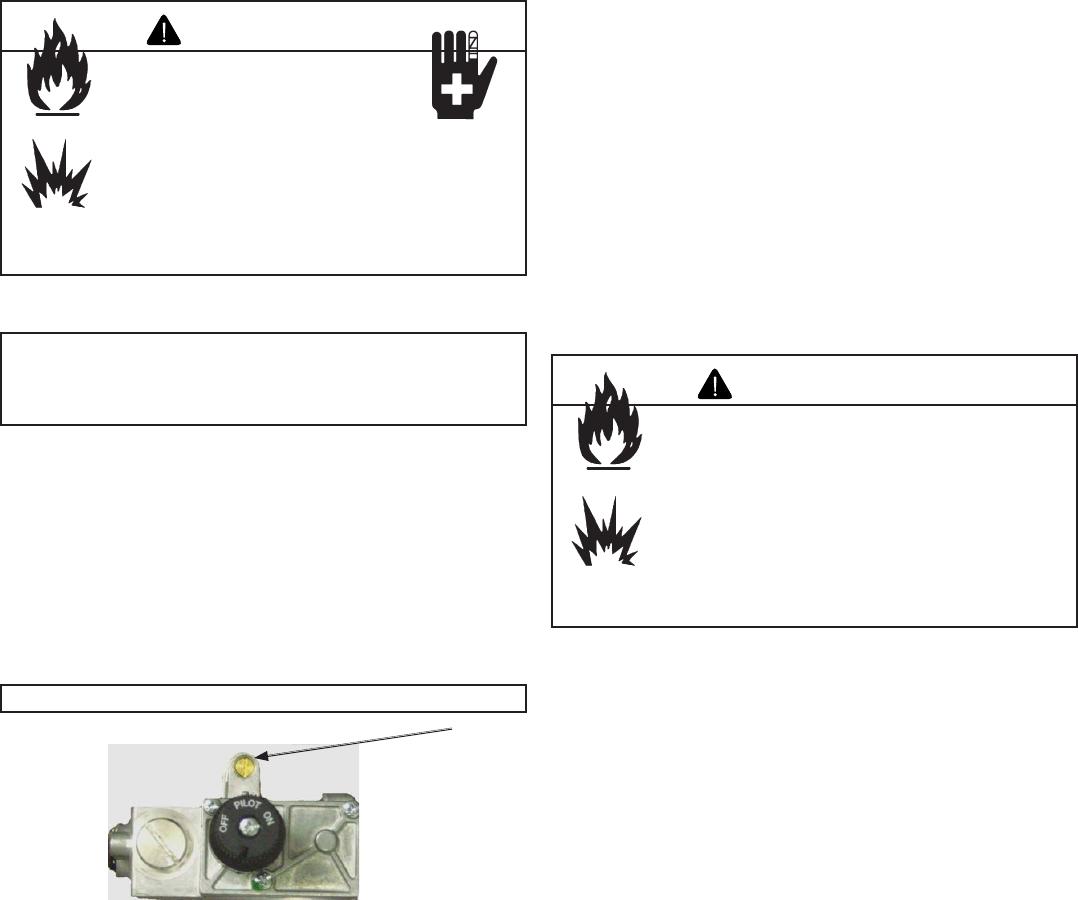
Hearth & Home Technologies • Fireside Burner/Hearth Kits • 4004-318•Rev D 2/2011
9
Fire Risk
Explosion Risk
Personal Injury Risk
Failure to position the parts in accordance
with the diagrams provided with the log
packages or failure to use only parts
approved with this appliance may result in
property damage or personal injury.
WARNING
E. Install the Logs
Note: If your log set is the burnt-out type, place the rock
wool in the center of the logs to give a glowing ember
effect.
F. Adjust the Pilot Flame
The pilot flame should be a soft blue color and should sur-
round the last 1/2 in. of the thermocouple tip. Refer to Figure
4.3. to locate pilot adjustment screw. If pilot flame must be
adjusted, use a standard slotted screwdriver to turn screw
clockwise to reduce flame or counterclockwise to increase
flame.
• Install the logs using the installation instructions included
with them.
• Light the burner as outlined in the operating section. Allow
the flame pattern to stabilize. If you are satisfied with the
flame pattern go to the next step. If you want more or less
flame around the front log, turn off the gas and move the
grate backward or forward.
• Once you are satisfied, turn on the gas and go on to the
next step.
• Arrange the top logs as shown in your log set up
instructions. Light the burner as outlined in the operating
instructions and allow the flame to stabilize.
• Spread the lava rock around the outside of the burner
pan on the floor of the fireplace. If possible, cover the gas
connector with the cinders. DO NOT cover any part of the
pilot assembly.
Figure 4.3 Pilot Adjustment Screw
G. Inspect the Venting System
The fireplace venting system is designed and constructed to
develop a positive flow adequate to remove flue gases to the
outside atmosphere. See fireplace installation instructions.
A spillage test must be made before the installed
appliance is left with the consumer
• Close all doors and windows in the home.
• Light the log set.
• After three minutes, test with a smoke match, smoke
candle, stick incense or cigarette one inch below the top of
the opening (lintel) moving across the full width. If spillage
(smoke drawn into the room) occurs, it will most likely be
near the top, outside corners.
Possible Cures if Spilling Occurs
• The damper should be fully open.
• The fireplace opening needs to be reduced by adding a
drop panel across the top under the lintel.
• The air supply from outdoors needs to be increased. Open
the outside air kit if the appliance is so equipped, or crack
open a door or window.
• If necessary, seek expert advice. Do not operate this
appliance.
Cleaning
Periodic examination and cleaning of the venting system
of the fireplace should be done before initial use and at
least annually by a qualified agency.
Fire Risk
Explosion Risk
Inspect external vent cap regularly.
• Ensure no debris blocks cap.
• Combustible materials blocking cap may
ignite.
• Restricted air flow affects burner
operation.
WARNING



